Whil e celebrating the 10th anniversary of its launch at the end of 2006, European Schoolnet (www.eun.org) has developed into a strong European service organisation. From the 16 Ministries of education who signed the original consortium agreement, the EUN has grown to almost 30 members and is currently serving three main groups, comprising schools in Europe and their teachers and pupils, ministries of education and other education authorities and agencies, and the European Commission, particularly Directorate Generals for Education and Culture and Information Society. Since its establishment EUN has worked to promote the European dimension in school education and the use of new technologies to improve and raise the quality of education. A key aim has been to build a rich, multilingual European community for innovation and collaboration in educational policy and practice.
e celebrating the 10th anniversary of its launch at the end of 2006, European Schoolnet (www.eun.org) has developed into a strong European service organisation. From the 16 Ministries of education who signed the original consortium agreement, the EUN has grown to almost 30 members and is currently serving three main groups, comprising schools in Europe and their teachers and pupils, ministries of education and other education authorities and agencies, and the European Commission, particularly Directorate Generals for Education and Culture and Information Society. Since its establishment EUN has worked to promote the European dimension in school education and the use of new technologies to improve and raise the quality of education. A key aim has been to build a rich, multilingual European community for innovation and collaboration in educational policy and practice.
Although the term e-learning has become part of the common vocabulary in the last few years, European initiatives to promote the use of ICT in teaching
learning have a longer history. The creation of European Schoolnet goes back to March 1997 when the Ministers of Education of the European Union and the European Commission agreed to support a Swedish proposal, which came under the European action plan entitled “Learning within the information society”. European Schoolnet was officially launched in September 1998 after a formal agreement between the partners was adopted in Lisbon, in June 1998. The decision-making body of the EUN is the steering committee, comprising one representative from each of the partners taking part. Day to day management of the EUN is carried out by the EUN Office located in Brussels.
The office has an international and multilingual staff of over 30 people. The financial resources come from contributions from Ministries of Education. The European Commission plays a big part in the financing via a large number of special projects developed within the framework of educational or research and development programmes specific to the European Union. EUN’s work is organised in three strands corresponding to its core objective of supporting the efficient use of ICT in education and the European dimension in education.
1. School Networking Services: Work aims to create a living European dimension for schools through international joint activities using ICT. EUN acts as a network of networks, providing common services and tools, online communities and activities to develop international activities for young people 2. Knowledge building and exchange on ICT Policy and Practice: The strand aims to build a community of ICT policymakers based on an informed knowledge base of intelligence and foresight in ICT policy-making, timely analytical papers and regular meetings and workshops. 3. Interoperability and content exchange: Work aims to encourage the exchange and interoperability of learning content in order to facilitate the implementation of learning technologies in schools across Europe. This includes work related to architectures, web services, standards, authentication federated searching and rights management. The most visible sign of the EUN’s activities are its portals: EUN provides major European education portals for teaching, learning and collaboration, offering a wide range of services for teachers, pupils, school managers and policy makers.
School networking and services
School networking has always been considered as a main priority for European Schoolnet. Within the framework of our projects, it can be defined as “facilitating the creation of organic web-like networks of schools (big and small) that communicate and work together as they wish or as they can on projects that make sense for them and their pupils” (Brigitte Parry – School networking manager). At the dawn of the century, school networking is currently the best
way to prepare young people, and through them society, for a successful future.
The EUN School networking methodology
The EUN office school networking team consists of a core multicultural group of highly experienced teachers with a thorough understanding of old and new ICT tools, learning and teaching environments and pedagogical innovation, international projects and network interactions both at policy and end user levels. Around this core group revolves a galaxy of experts groups, clustered and managed according to the needs of our different projects (science, environment, arts, citizenship, etc). Those experts are based in schools and in all EUN related networks; they are in daily contact with pupils. This network of networks of experts is instrumental in the success of all our projects with schools. They offer teachers from all European countries opportunities to work together around themes that can be adapted to their curriculum and through the discovery of new technological tools. For each project, it creates an online platform, develops applications, templates and tools for pedagogical activities, produces guidelines for teachers and gives high international visibility to the resources and events created by the pupils through the proje
Successful school networking project
Virtual School Project: ‘For European Teachers by European teachers’
One of European Schoolnet’s very first school networking projects was the Virtual School project (VS). The Virtual School was a virtual meeting place for teachers to exchange material and discuss experiences and was launched to meet teachers’ need for relevant content for their work. Teachers were encouraged to submit anything from ideas for activities or events to fully-fledged online lessons. The VS editors and web team made sure the material offered was relevant, safe and useful. The Virtual School was one of the EUN’s key networks and led the way in the development of many other initiatives helping teachers. eTwinning: school partnerships (http:// www.etwinning.net)
European Schoolnet currently runs the Central Support Service and international portal for the European Commission’s eTwinning action. More than 15,000 schools have registered so far and more than 1,500 collaborative projects have been set up between schools from different countries. The ultimate goal of this action is to give as many European pupils as possible opportunities to use ICT to exchange and learn with other pupils from other countries before the end of their school years. eTwinning successfully contributes to the development of many teacher training materials and workshops, and therefore to the development of European education in general. MyEurope: youth awareness of European citizenship (http://myeurope.eun.org) My Europe is a 6 year-old project built on a very active network of more than 5000 schools. It was originally created to link up schools from old European member states and candidate countries. In 2004, ten new countries joined the European Union, and the myEurope project had achieved its goal. Its main aim is now to provide sets of learning objects on themes related to citizenship and Europe. Those learning objects are meant to be used by teachers directly in the classroom and in different languages. SpringDay 2006: earn, share, debate, speak out (http://www.springday2006.org) Spring Day in Europe is a citizendriven event project on democracy and citizenship where young people learn and make their voice heard on topical European issues. It is a day of debate and dialogue symbolically, the first day of spring of each year – prepared several months in advance through pedagogical activities in the classroom and with the participation of national and European decisionmakers. The wide involvement in the event of a large number of members of the European Parliament and Commissioners has been inspiring for schools. One of the main assets of Spring Day is the combination of several human and institutional networks
Coordinated by European Schoolnet, a group of teachers/pedagogical advisors based in 29 countries interact with a network of representatives from all ministries of education who guarantee the legitimacy of the project within a
school curricular context. Both groups collaborate with European Commission and European Parliament representations. Members of the European Parliament, together with local, regional and national personalities, participate in debates with young citizens on Spring Day and around the topic of the year. The success of Spring Day in Europe largely rests on this set of intertwined and complementary networks of professionals. This year, 7,501 schools from 29 countries organised events and ebates about the future of the European Union. Spring Day in Europe can be considered as the largest and most successful initiative to raise European awareness among schools. Insafe: Internet Safety (http://www. saferinternet.org) Insafe is a European network of 23 nodes in 21 countries, dedicated to raising awareness of internet safety. It includes a broad range of organisations including educational authorities, universities, media councils and charities. The network is coordinated by European Schoolnet, which has been mandated by the European Commission’s Safer Internet Programme to become European leader in this global community. Its mission is threefold: empower citizens to use internet effectively, help them avoid its potential pitfalls and protect the privacy of their information. The Insafe portal offers links that lead to a steadily growing source of information collected by awareness raising partners across the world with the aim to provide users with a comprehensive overview of a wide range of internet safety issues. Comenius Space (http:// comenius.eun.org) This initiative is a moderated online platform offering information and partner-finding tools to any school or institution interested in the European Commission’s Comenius action. This action is closely linked to the previously mentioned eTwinning action. Comenius Space is a very successful online platform, which provides the elements necessary for schools to set up micro networks and get European funding for their work over a 3-year period.
Knowledge building through exchange on ICT policy and Practice
EUN is as much concerned in providing intelligence on ICT use to schools and policy makers in Europe and beyond, as with providing rich activities and immediate support to teachers in the classroom. To be sure, the EUN Insight Observatory for New Technologies and Education is an informed knowledge base of intelligence and foresight in ICT policy and practice in European schools. The Insight portal (http:// insight.eun.org) serves as a reference point for policy-makers, researchers and school innovators and/or all those who want to be informed about the main developments of e- learning in European countries but also gain insight into specific topics dealing with school practices in using ICT in innovative ways, in e-learning policy making and in questions related to interoperability. Key documents of the Insight portal are the Insight’s Country reports that are regularly updated in-depth descriptions of national developments in different areas of e-learning policies in schools and compulsory education. Insight also provides an annual ‘trends and issues’ report identifying the main tendencies across European countries, as well as briefings and
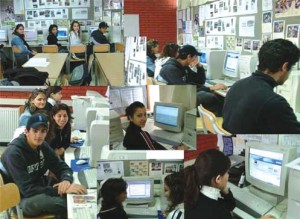 Projects, competitions, activities, communication and information exchange at all levels of school education using innovative technologies, this is how EUN strives to meet its goals, being at the crossroads of national and regional education networks, building synergies between communities of teachers, learners, developers, researchers and policy-makers
Projects, competitions, activities, communication and information exchange at all levels of school education using innovative technologies, this is how EUN strives to meet its goals, being at the crossroads of national and regional education networks, building synergies between communities of teachers, learners, developers, researchers and policy-makers
updates on EU ICT-related policy issues. As such, these documents constitute a unique tool for policy makers and other education professionals to identify latest e-learning and education trends in their neighbouring countries and the EU. One of the most popular divisions of the Insight portal is the School Innovation section. Here visitors can find information, research findings and reports about innovative ways to implement ICT within the school environment. A key feature of this area is the ‘Insight Schools Gallery’ with portraits of schools that have been selected to take part in a range of projects since 2000 (e.g. e-watch, Ernist (http://www.european schoolnet.org/ww/en/pub/eun/ projects/coordinator/ernist.htm), P2P (http://p2p.eun.org), Calibrate (http://calibrate.eun.org)). The schools showcased in this section are excellent examples of school collaboration, and with their inspirational practices are leading the way in e-maturity.
The Interoperability section of the Insight portal deals with issues around interoperability and content exchange, which has become one of the main foci of EUN and its partners in the last years. Interoperability is not only seen from the technical areas mentioned above (policy, technology and innovation) and offering a one-stop insight into specific education-related issues such as innovation, leadership, internet safety or quality in education, just to mention a few under the ‘thematic dossiers’ section. European Schoolnet, the unique notfor- profit consortium of almost 30 ministries of education in Europe provides major European education portals for teaching, learning and collaboration and leads the way in bringing about change in schooling through the use of new technology. Projects, competitions, activities, communication and information exchange at all levels of school education using innovative technologies, this is how EUN strives to meet its goals, being at the crossroads of national and regional education networks, building synergies between communities of teachers, learners, developers, researchers and policy-makers. EUN invites to participate in the EUN community, a free online collaborative platform aimed at schools and institutions that want to set up and run cooperative online projects 9http://community.eun.org/enter.cfm), or subscribe to the newsletters (www.eun.org). angle, but rather as an enabler for sharing pedagogy, infrastructures, tools and resources (both digital and non-digital including human resources). This section regularly features news and emerging issues related to the Learning Resources Exchange (LRE, http://lre.eun.org), a service that provides the means to share digital content among all partners (Ministries of Education, regional educational authorities, commercial publishers, broadcasters, cultural institutions and other non-profit organisations) of the LRE and their users. In this section, one also finds the ‘monthly insight to interoperability’ in which international experts are questioned on the current issues on standards and harmonisation of eLearning services, both on the system and content level. Additionally, this section also informsits readers on actions on European Interoperability Framework for eLearning (LIFE) that seeks to bring together actors from different sectors (schools, academia, government, industry, education and training) to discuss common issues such as learning object repositories, learner profile, accessibility, etc. Insight also highlights specific themes and issues drawing from the
 India. As per 2001 Census, the effective literacy rate was 90.92%. At present, there are 12271 Schools consists of 6712l L.P. Schools, 2951 U.P Schools and 2608 High Schools in the State. Of these, 4492 are Government Schools, 7282 are Private aided Schools and 497 are Private Unaided School
India. As per 2001 Census, the effective literacy rate was 90.92%. At present, there are 12271 Schools consists of 6712l L.P. Schools, 2951 U.P Schools and 2608 High Schools in the State. Of these, 4492 are Government Schools, 7282 are Private aided Schools and 497 are Private Unaided School






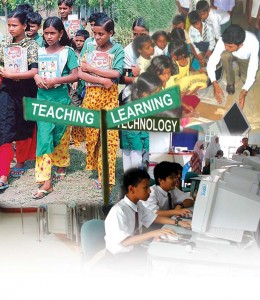

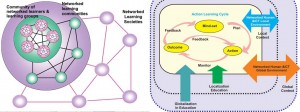
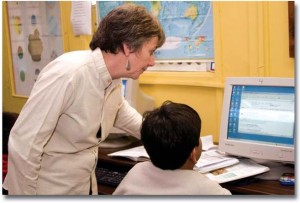
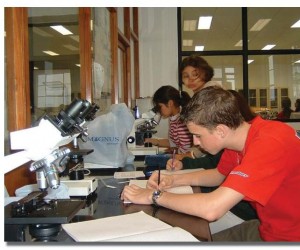
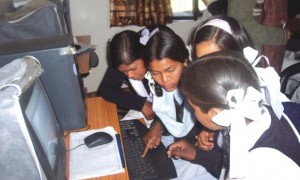
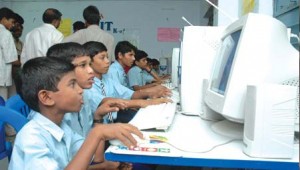 Proposed activities
Proposed activities













